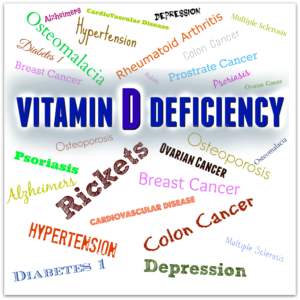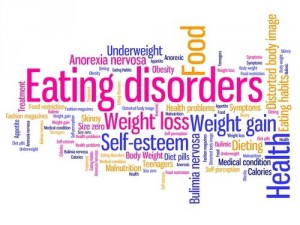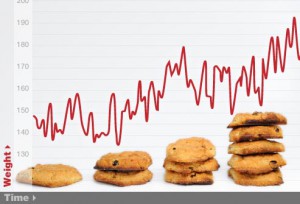
Depression has been called the world’s number one public health problem. The American psychological association states that it is the most commonly occurring mental disorder. In India statistics show a shocking rise in the number of depression cases every single year and it affects almost every age group irrespective of gender.
Most of us know depression is a heterogeneous illness and has many different triggers. Let’s try to identify if VITAMIN D deficiency is one among them.
Vitamin D also was known as the “Sunshine” vitamin is a steroid hormone precursor. It was originally thought to play a role in mineralization of bones for keeping them strong and healthy, but over time research has linked low levels of Vitamin D levels to obesity, heart disease, diabetes, cancer, anxiety and DEPRESSION!
Limited sun exposure, darker skin tone, higher altitudes, poor diet, liver and kidney diseases, age etc., are few risk factors for Vitamin D deficiency.
Diagnosis: The most accurate way to measure how much Vitamin D is in your body is the 25- hydroxylated blood test (25(OH)D). In my practice, I have observed not many have enough or optimal Vitamin D levels which should be over 35 ng/ml
I personally feel that it’s the most underrated and undervalued vitamin of all
Symptomology: If you have a Vit D deficiency you may experience following physical symptoms
- Aching bones, joint pains
- Poor muscle endurance
- Muscle cramps and weakness
- Fatigue and generalized weakness
- DIFFICULTY LOSING WEIGHT
- Low immunity
- Decreased stamina and endurance
You may also experience symptoms of Depression that include:
- Overwhelming sadness, hopelessness, feeling empty
- Diminished interest or pleasure in activities
- Loss of appetite
- Significant weight loss(when not on diet) or weight gain
- Insomnia or Hypersomnia(excessive sleep) nearly every day
- Lethargy
- Problems concentrating
- Headaches, back and neck pains
- Psychomotor agitation/retardation(restlessness or sluggishness)
- Recurrent suicidal ideations.
A link between Vitamin D deficiency and Depression
Many research studies have concluded that Vitamin D receptors have been found in the areas of brain that are linked to the onset of depression, It has also been found that Vitamin D affects the number of chemicals called Monoamines such as serotonin, dopamine (also known as ‘happy hormones’) and how they work in brain. Many anti-depressants medications work by increasing the number of monoamines in the brain.
A review of an international research shows Over 31,000 people participated in 13 studies that efficiently studied this area and the results showed a significant relationship between low levels of Vitamin D and depression.
According to a study in the Netherlands involving 1,702 people found that significant low levels of Vitamin D cause the developing of depressive symptoms in individuals. A 2 year follow up suggested that Vitamin D could be a cost-effective part of prevention and treatment interventions for depression.
One type of depression that appears to be even more strongly associated with Vitamin D is Seasonal Affective Disorder (SAD), a mood disorder characterized by depressive symptoms during times of year when there is relatively less sunshine. It occurs majorly during winter seasons. Symptoms of SAD coincide with a reduction in Vitamin D which in turn effects serotonin levels in the brain, thereby causing depressive symptoms.
Food sources of Vitamin D:
- Fatty fish like tuna, mackerel, salmon, sardines and herring
- Cod liver oil contains 450 IU of Vitamin D per teaspoon(5ml)
- Oysters, shrimp
- Egg yolks
- Mushrooms: Like humans, mushrooms synthesize D when exposed to UV light
- Vitamin D fortified cereals, milk, orange juice or soy milk.
Other helpful options are to get enough sun (at the least for around 15 mints daily) around midday which can be between 11 am to 1 pm. At this time sunlight is at its highest point and your body may manufacture it more efficiently in less time.
Also, get Vitamin D supplements if your D levels are at extremely low levels, recommended daily allowance (RDA) would be of 600 IU daily, plus a 60,000 IU Vitamin D sachet in milk/curd once every month for 4-6 months(see your physician for more information)
Of course, Vitamin D supplementation is only a part of a comprehensive treatment plan. A plan whether based on pharmaceuticals or natural methods should include psychotherapy. However, low levels of Vitamin D can impair and prolong recovery from depression. Hence, it’s always best to treat a problem holistically!
NOTE:
- Healing properties of natural sunlight cannot penetrate glass, you cannot sit inside your home or car and reap its benefits
- If you have darker skin, you will need about 25 times more exposure than a light-skinned individual to produce the same amount of D
- You are looking at months of sunlight/supplements before levels return to normal
- Kidneys and liver activates Vitamin D, having a kidney disease or damaged liver will hinder the activation of Vitamin D
- SUNSCREENS- From strongest to weakest prohibit the body from making vitamin D by 95%. Your body needs sunlight without sunscreens to produce vitamin D. Even SPF 8 creams can prevent the production of vitamin D






